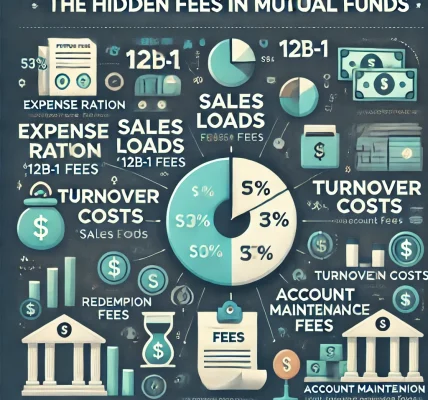Index funds have become a popular choice among long-term investors due to their simplicity, low costs, and consistent performance. If you’re looking for a hassle-free way to grow your wealth over time, investing in index funds could be the smart move you’re searching for. This blog will walk you through the essentials of index funds and why they are a preferred choice for many investors.
What Are Index Funds?
Index funds are mutual funds or exchange-traded funds (ETFs) that aim to replicate the performance of a specific market index, such as the S&P 500, Nifty 50, or Dow Jones Industrial Average. These funds invest in the same stocks or bonds that comprise the index, providing investors with broad market exposure.
Why Are Index Funds Ideal for Long-Term Investors?
1. Low Costs
Index funds are passively managed, meaning they don’t require frequent trading or extensive research by fund managers. This results in significantly lower expense ratios compared to actively managed funds.
2. Diversification
By investing in an index fund, you automatically gain exposure to a wide range of companies across sectors and industries, reducing the risk of significant losses due to the poor performance of a single stock.
3. Consistent Returns
Index funds aim to match the performance of the market, which historically has delivered steady returns over the long term. While they won’t outperform the market, they won’t underperform it either.
4. Ease of Investment
With index funds, there’s no need to research individual stocks or time the market. This makes them an ideal option for beginners and seasoned investors alike.
Benefits of Index Funds
1. Predictable Performance
Since index funds track the performance of established indices, their returns are predictable and closely aligned with overall market trends.
2. Tax Efficiency
Index funds tend to have lower turnover rates, resulting in fewer taxable events compared to actively managed funds.
3. Long-Term Growth
The power of compounding combined with the steady growth of markets makes index funds an excellent choice for achieving long-term financial goals.
How to Get Started with Index Funds
1. Choose the Right Index
Identify an index that aligns with your investment goals. For example:
- S&P 500 or Nifty 50: For exposure to large-cap companies.
- Nasdaq 100: For tech-focused investments.
- Bond Indices: For conservative, fixed-income investments.
2. Compare Expense Ratios
Opt for funds with the lowest expense ratios to maximize your returns.
3. Review Historical Performance
While past performance is not indicative of future results, it can provide insight into how the fund responds to market fluctuations.
4. Start Investing Regularly
Use a Systematic Investment Plan (SIP) to invest consistently over time, reducing the impact of market volatility through rupee cost averaging.
Index Funds vs. Actively Managed Funds
| Feature | Index Funds | Actively Managed Funds |
|---|---|---|
| Management | Passive | Active |
| Cost | Low Expense Ratio | Higher Expense Ratio |
| Risk | Market Risk | Market + Fund Manager Risk |
| Performance | Matches Index Performance | May Outperform or Underperform |
Are Index Funds Right for You?
Index funds are suitable for:
- Beginners: Simple and low-maintenance.
- Risk-Averse Investors: Broad diversification minimizes risk.
- Long-Term Planners: Ideal for retirement planning or wealth accumulation over decades.
However, if you prefer actively trying to beat the market or investing in niche sectors, actively managed funds may be more appealing.
Conclusion
Investing in index funds is a proven strategy for building wealth over the long term. Their low costs, diversification, and consistent performance make them an excellent choice for anyone looking to simplify their investment journey while achieving financial goals.




